The NWM-Denmark Network
Ahlam Chemlali
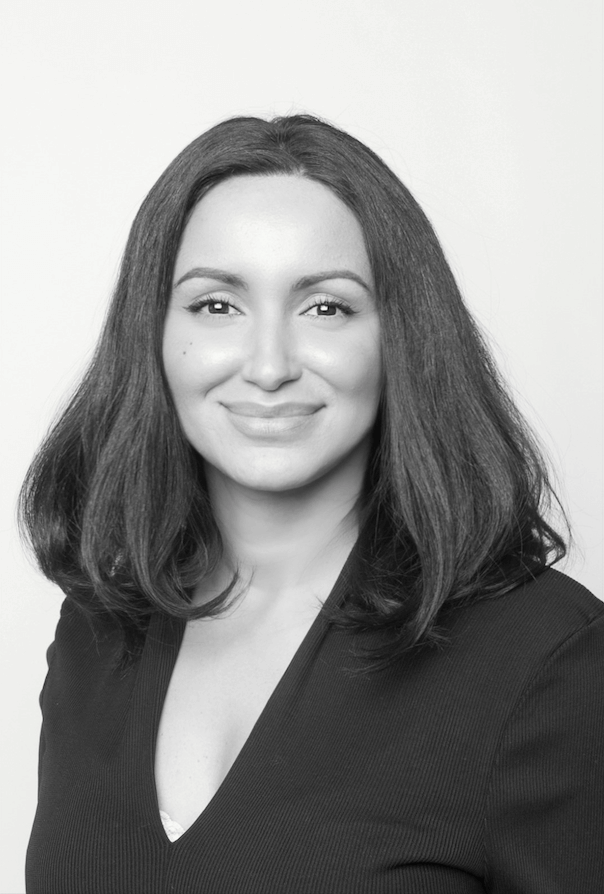 Ahlam Chemlali has worked for over a decade in programme and research management within the fields of human rights, violence prevention and the security sector. Chemlali is a multidisciplinary professional with both HQ and field experience in several conflict and post-conflict settings. She has conducted +70 field missions in fragile and war-affected parts of the world, across Sub-Saharan Africa, the MENA region and South Asia.
Ahlam Chemlali has worked for over a decade in programme and research management within the fields of human rights, violence prevention and the security sector. Chemlali is a multidisciplinary professional with both HQ and field experience in several conflict and post-conflict settings. She has conducted +70 field missions in fragile and war-affected parts of the world, across Sub-Saharan Africa, the MENA region and South Asia.
With a cross-disciplinary academic background in health, development and human rights, Chemlali has developed strong research skills in both quantitative and qualitative methods and has led, designed and implemented several trans-national research studies across Sub-Saharan Africa and South Asia on human rights, violence prevention and development.
Since 2016 Chemlali has been a member at the Ministry of Foreign Affairs Peace and Stabilisation Response Team (FSB) which deals with the deployment of Danish experts, undertaking assignments in the field of crisis management, conflict-preventive, civilian peace-keeping including humanitarian operations and missions, within the framework of EU, UN, OSCE, NATO, and other organisations. Ahlam has also since 2014 been member of The Council for International Conflict Resolution (RIKO) a Danish independent policy think tank whose aims are to promote non-military and non-violent resolutions to international conflicts.
Country experience: Sierra Leone, Liberia, Ghana, South Africa, Uganda, Kenya, Tanzania, Egypt, Libya, Tunisia, Jordan, Palestine, Nepal, Bangladesh, Pakistan, The Philippines.
Anne Kahl
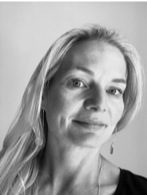 Anne Kahl is a Special Advisor on sustaining peace and governance with UNDP in New York and works to advance the implementation of SDG 16+ for more peaceful, just and inclusive societies.
Anne Kahl is a Special Advisor on sustaining peace and governance with UNDP in New York and works to advance the implementation of SDG 16+ for more peaceful, just and inclusive societies.
Anne has more than 15 years of experience working in conflict-affected and transition settings, including holding senior positions providing strategic and technical guidance to UN leadership, UNDP Country Offices, and the Danish Ministry of Foreign Affairs. As a highly skilled development practitioner and policy specialist, Anne is an expert on the linkages between governance, rule of law, conflict prevention and peacebuilding and has held positions at global, regional and national levels.
Prior to taking up her current position at UNDP HQ, Anne was Head of the Danish Programme Office in Jordan for the Danish Ministry of Foreign Affairs. With UNDP Sudan, Anne managed a Peacebuilding Programme supporting community peacebuilding and mediation processes. As a Conflict Prevention Specialist with UNDP’s Bureau for Crisis Prevention & Recovery, Anne provided technical advice to UN Country Teams and UNDP Country Offices, including facilitation of context analysis processes and design of governance and peacebuilding programmes in Iraq, Kyrgyzstan, Pakistan, Palestine, Myanmar, Somalia and Timor-Leste. With the UN Resident Coordinator’s Office in Lebanon, Anne provided coordination support and policy advice to the UN Resident Coordinator and UN Country Team on peacebuilding and post-conflict recovery. Anne has also held the position of Middle East Director for GAME, a Danish NGO working for social change through youth-led street sports and culture.
Anne is a Danish national and holds a master’s degree in Political Science from the University of Copenhagen.
Anine Hagemann
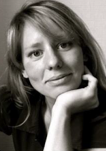
Anine Hagemann is an academic and a practitioner with broad experience and knowledge about mediation, peacebuilding and conflict resolution.
She is currently on sabbatical from the Danish Ministry of Foreign Affairs, writing her doctoral thesis at the Centre for Resolution of International Conflicts at the Department of Political Science, Copenhagen University. Her research focuses on Nordic approaches to peacebuilding, women's participation in peace negotiations and UN Peacekeeping Operations.
Anine worked with peacebuilding and protection in active conflict as a senior advisor in the UN peacekeeping mission in South Sudan in 2015-16. She has also worked on post-conflict transformation, justice and human rights as first secretary at the Danish Embassy in Nepal 2013-15, where she was responsible for the political section at the embassy and for Danish development programming. From 2009-13 Anine worked in Copenhagen for the Ministry of Foreign Affairs. Her portfolios have included Afghanistan, Pakistan, Somalia and the Horn of Africa as well as strategic work on stabilization and counter piracy. She assisted the Danish Minister for Development Cooperation in his Chairmanship of the International Dialogue on Peacebuilding and Statebuilding in 2011-12.
Anine sits on the board of the peacebuilding NGO Conducive Space for Peace.
Birgitte Markussen
Bio TBA
Camilla Brückner
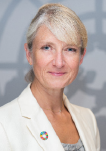 Director, UNDP Nordic Representation Office.
Director, UNDP Nordic Representation Office.
Camilla Brückner has more than 27 years of development policy and management experience in Danish and international organizations.
Camilla Brückner was appointed Director for UNDP’s Nordic Representation Office (NRO) in February 2012 having previously been Deputy Chief of Staff and Deputy Director for UNDP’s Executive Office. Prior to that, she served at the Danish Ministry of Foreign Affairs for 13 years, heading divisions at the UN mission as Deputy Permanent Representative and earlier in the department of non-governmental organizations and civil society relations, the department of humanitarian affairs and the department of development policy.
As the Director for the NRO Ms. Brückner is responsible for developing and deepening the partnership with UNDP’s Nordic partners (Denmark, Finland, Norway, Sweden and Iceland) and main core donors. This involves both policy dialogue on all areas of UNDP’s mandate, advocacy and communication with the Nordic Governments, civil society, media and private sector.
Ms. Brückner’s previous professional experience also includes posting as a national expert in the European Commission, in the Humanitarian Directorate General and as a research fellow at the Center for European Policy Studies.
Ms. Brückner is a Danish national. She holds a Master’s Degree in Economics from the London School of Economics and Political Science
Charlotte Slente
 Ms Charlotte Slente was appointed Secretary General of the Danish Refugee Council December 1st, 2019.
Ms Charlotte Slente was appointed Secretary General of the Danish Refugee Council December 1st, 2019.
Ms Slente comes from a long career in the Royal Danish Ministry of Foreign Affairs and has held multiple senior management posts central to Denmark’s development and humanitarian policy, hereunder State Secretary for Development Policy and Under-Secretary of State for Global Development – heading the Danish International Development Agency DANIDA. Charlotte Slente has also served high-level diplomatic posts, including Under- Secretary of State for Global Politics and Security, as well as Under-Secretary of State for Consular Affairs.
Ms Slente has been Ambassador for Fragile States, as well as Economic Diplomacy and held several senior posts at Denmark’s bilateral Embassies. Ms Slente started her career with UNDP and holds a Master of Science in International Business Administration and Modern Languages from the Copenhagen Business School.
Charlotte Slente was born in 1966 and is married to Alberto, with whom she has two sons, aged 18 and 21.
Dorte Pilegaard
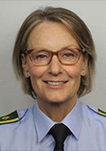 Dorte Pilegaard is a special consultant at the Police Academy in Copenhagen.
Dorte Pilegaard is a special consultant at the Police Academy in Copenhagen.
She has been a police officer, since she started at the police academy in 1981. Throughout her police career, she has been engaged in several different departments, such as traditional patrolling, investigation, dispatch, secret service, police prosecutor and case officer, police recruitment, internal affairs legal section and as an instructor at the police academy (human rights and criminal law).
Besides traditional national policework, Dorte has been engaged in international policework.
She has been on a long-term mission in Iraq, where she met with the leaders/generals at Baghdad Police College, Female Training Institute on a daily basis. At FTI, she advised and guided the generals on how to create tolerable and beneficial conditions for female police officers.
For the past 10 years, Dorte has been a member of the International Trainer and Facilitator Team of the Danish National Police. This team trains mostly police officer in the Middle East and in different African countries. In July 2019 for example Dorte was in Rwanda, where she facilitated a two-week course in Gender Mainstreaming and Sexual and Gender Based Violence. She plans on going to Baghdad in 2020 to do training in different topics such as Midlevel Management and investigation, interrogation, forensics among others.
Besides being a police officer, Dorte has a Master’s Degree in Law from the University of Copenhagen.
Hanne Lund Madsen
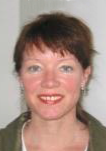 Hanne Lund Madsen is strongly engaged in conflict mediation in Denmark as certified mediator by the National Commission of Police and she has vast global experience with high level mediation and dialogue facilitation among political parties and related actors - including Myanmar, Burkina Faso, Kenya and Tanzania.
Hanne Lund Madsen is strongly engaged in conflict mediation in Denmark as certified mediator by the National Commission of Police and she has vast global experience with high level mediation and dialogue facilitation among political parties and related actors - including Myanmar, Burkina Faso, Kenya and Tanzania.
She is recently appointed as Global Programme Director at Cross Cultures after working for seven years at the Danish Institute for Parties and Democracy (DIPD) as Head of Global Programmes and spearheading the institute’s dialogue and conflict mediation initiatives.
Her interdisciplinary and multi-stakeholder approach is harnessed during a long track record as trusted advisor to the UN, bilateral donors, global and local NGOs on human rights, democratization, good governance and corporate social responsibility and as lecturer and trainer at the Danish Institute for Human Rights and the Raoul Wallenberg Institute. She serves as Board Member of the Danish Centre for Conflict Resolution and of the Danish Association of Managers and Executives.
Isabel Bramsen
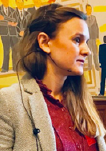
Isabel Bramsen holds a PhD in Political Science from Copenhagen University and is Senior Associate Lecturer at Lund University, Department of Political Science. Prior to this she was a postdoctoral researcher at the Centre for Resolution of International Conflicts (CRIC), Universisty of Copenhagen where she co-founded and lead the Master’s program “Specialization in International Relations and Conflict Resolution” at University of Copenhagen.
She has been involved in various civil society activities in relation to international conflict resolution among other things as chair of the board in council for resolution of International Conflicts (RIKO) for several years.
She currently conducts research in the area of mediation and agonistic peace focusing on the micro-dynamics of power, cooperation and conflict. Bramsen has conducted field studies in Israel-Palestine, Costa Rica, Bahrain, Tunisia and Turkey among other places. She has published several books and articles on peace, gender, violence, nonviolence, conflict transformation and emotions.
Karin Sørensen
 Karin Sørensen has for more than two decades worked with UN agencies, UN political- and peacekeeping missions and the Danish Ministry of Foreign Affairs, in increasingly senior advisory and management positions.
Karin Sørensen has for more than two decades worked with UN agencies, UN political- and peacekeeping missions and the Danish Ministry of Foreign Affairs, in increasingly senior advisory and management positions.
Currently she holds the position as the East Africa and Great Lakes Deputy Regional Director for the Danish Refugee Council. Karin have pre-dominantly worked with management, strategic policy and programme development in fragile and conflict environments, including Afghanistan, Sudan, South Sudan, Yemen, Somalia, DRCongo and Syria.
Karin works with peace building, governance and conflict resolution as an integrated part of her portfolios during the 20 years abroad. She has senior level policy, advocacy and programme experiences within these areas from both HQ , Regional and National level
Katarina Ammitzbøll
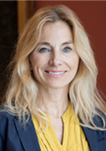 Katarina Ammitzbøll is currently Member of the Danish Parliament and is spokesperson for International Development, the EU and Education & Science. Recently, she worked as Senior Manager, Sustainability & Strategy at A.P. Møller Mærsk with focus on how the corporate sector could leverage its capabilities in partnerships for transformative change. Katarina has + 20 years of experience with conflict resolution, peacebuilding and democratic statebuilding providing advisory services to government executives and UN leadership in such countries as Afghanistan, Timor Leste, Kyrgyzstan and the MENA region. Her last assignment with the UN was assistant country director with UNDP in Afghanistan, where she worked for almost three years. Katarina has also worked as advisor to the EU and NATO on peacebuilding and civil-military cooperation. From the UN, Katarina moved back to Denmark after 10 years abroad and became a diplomat at the Danish Ministry of Foreign Affairs and served also as minister counsellor at the Danish Mission to the United Nations in Geneva. Thereafter, she headed up the department for Government at the PeaceNexus Foundation.
Katarina Ammitzbøll is currently Member of the Danish Parliament and is spokesperson for International Development, the EU and Education & Science. Recently, she worked as Senior Manager, Sustainability & Strategy at A.P. Møller Mærsk with focus on how the corporate sector could leverage its capabilities in partnerships for transformative change. Katarina has + 20 years of experience with conflict resolution, peacebuilding and democratic statebuilding providing advisory services to government executives and UN leadership in such countries as Afghanistan, Timor Leste, Kyrgyzstan and the MENA region. Her last assignment with the UN was assistant country director with UNDP in Afghanistan, where she worked for almost three years. Katarina has also worked as advisor to the EU and NATO on peacebuilding and civil-military cooperation. From the UN, Katarina moved back to Denmark after 10 years abroad and became a diplomat at the Danish Ministry of Foreign Affairs and served also as minister counsellor at the Danish Mission to the United Nations in Geneva. Thereafter, she headed up the department for Government at the PeaceNexus Foundation.
Katarina Holds a MA International Development & Public Sector Economics and a LLM in human rights, international humanitarian law, political Islam and Islamic jurisprudence, University of Warwick, UK. Trained as conflict resolution and mediation expert at the African Centre for Constructive Resolution of Disputes.
Line Brylle
 Line Brylle has worked for over a decade in managing programmes for international organisations within the fields of humanitarian mine action, conflict resolution and humanitarian assistance – working mainly in CAR, DR Congo and in the Sahel region. In her current position as Global Armed Violence Reduction Advisor for the Danish Refugee Council - Danish Demining Group (DRC-DDG), Line supports programming worldwide, covering over 10 countries such as Afghanistan, Nigeria and Somalia. This includes advising on community-based safety approaches, supporting staff and communities with community-based conflict management, developing mediation and dialogue initiatives. Line has an academic background in Anthropology of Development (MA) and has a professional training in mediation.
Line Brylle has worked for over a decade in managing programmes for international organisations within the fields of humanitarian mine action, conflict resolution and humanitarian assistance – working mainly in CAR, DR Congo and in the Sahel region. In her current position as Global Armed Violence Reduction Advisor for the Danish Refugee Council - Danish Demining Group (DRC-DDG), Line supports programming worldwide, covering over 10 countries such as Afghanistan, Nigeria and Somalia. This includes advising on community-based safety approaches, supporting staff and communities with community-based conflict management, developing mediation and dialogue initiatives. Line has an academic background in Anthropology of Development (MA) and has a professional training in mediation.
Lisbeth Pilegaard

Lisbeth Pilegaard is the Executive Director of the Danish Institute for Parties and Democracy (DIPD) providing democracy assistance through partnership-based projects in Africa, Asia, Latin America and the Middle East. DIPD work to develop democratic institutions and civil society focusing on media, young people, elections, gender and human rights.
Pilegaard has over 25 years of experience as manager of several humanitarian organisations and programmes based in Asia, Africa, the Balkans, Caucasus and the Middle East, where she facilitated and undertook mediation and negotiation related to humanitarian operations and access.
Lisbeth Pilegaard is elected as Chair of the Executive Committee of the Brussels-based European Endowment for Democracy rendering support to democratic civic activities in EU neighbourhood countries and beyond. Prior Pilegaard ran a consulting firm – providing technical and strategic advice on foreign affairs in conflict settings and fragile states for the Civil Society, UN agencies, World Bank and Governments. Pilegaard headed the Department for Middle East & North Africa at the Danish institution on Gender, Equality and Diversity. Here she led the development of strategic partnerships between Denmark and the MENA region, working with partners within the public, private and civil society sector to help increase women’s economic, social and political participation. Pilegaard has served in various NGO/UN/EU committees and working groups on development and humanitarian aid coordination, Gender, Diversity and transparency. In 2015, Pilegaard was seconded as Humanitarian Expert Adviser to the UN High Level Panel on Humanitarian Financing and has been a member of the Danish Delegation to UN Commission of the Status of Women (CSW). Pilegaard is appointed Pro-bono Adviser to UN Compact Cities Programme, Australia and member of the council of RIKO (Danish Independent Think-Tank on Foreign Affairs and International conflict Resolution issues).
Lone Jessen
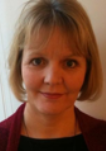
Ms. Lone Jessen (Denmark) is the UN’s Department of Political and Peacebuilding Affairs’ (DPPA) Senior Political and Gender Adviser, heading up the UN Department’s Gender Peace and Security Unit. The Unit was until April 2016, embedded in the UN’s Mediation Support Unit, but became a stand-alone unit in the Policy and Mediation Division, emphasizing the importance DPPA attaches to this portfolio. This structural change was also undertaken to further highlight its cross-cutting work beyond conflict resolution and mediation, including women’s political participation and gender considerations in electoral support, conflict prevention and the response to new security threats, including violent extremism.
Prior to joining the UN’s Mediation Support Unit in 2009, Lone worked for 12 years in different offices of the UN, dealing with peacemaking, peacekeeping, and the cross-cutting issue of promoting inter-agency cooperation in the area of early warning and preventive action in the Americas and Europe, the Department’s Policy Planning Unit, the Palestinian Right Division, and the Decolonization Unit. In 1998-1999 she was on mission assignment in Cyprus, assisting in on-island peace talks. In 2009, trying to address a gender gap in the Political Department’s work, she finalized a sabbatical project on how to strengthen and gender mainstream the Political Department’s peacemaking work and gender capacity overall, which resulted in the creation of the first gender adviser post in the Department, at UN NY headquarters. Since then Lone has pioneered DPPA's work on gender, women, peace and security, including establishing and conducting the annual UN High-level Seminar series on Gender and Inclusive Mediation Strategies in partnership with CMI and PRIO. Lone is a Danish national, who as a Fulbright scholar, holds a Master’s Degree from Columbia University, NY, in International Relations.
Lotte Jæger Bank-Nielsen
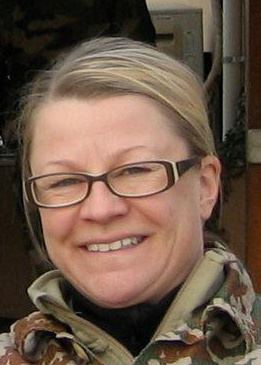 Lotte Jæger Bank-Nielsen is an officer from the Royal Danish Air Force.
Lotte Jæger Bank-Nielsen is an officer from the Royal Danish Air Force.
Currently she holds the position of head of the section for Leadership Education at the Royal Danish Defence College.
Before that, she worked within the field of leadership with specific focus on military operational culture and cultural awareness.
Alongside, Lotte has worked with gender related topics within the Danish Armed Forces and is a NATO-trained trained Gender Advisor.
Lotte has been deployed to both Iraq and Afghanistan. In Afghanistan her primary task was strategic capacity building on both literacy and gender within the NATO Traning Mission, Army working “shona ba shona” with the Afghan armed forces to rebuild their military training capacity within the mission. She was primarily working from Daruleman, in the southern part of Kabul.
Besides her military education, Lotte holds a Master of Public Administration from Copenhagen Business School from 2017.
Maria Pade Lange
 Maria Pade Lange (Denmark) has 16 years’ experience in peacebuilding research, design, management and implementation, working in conflict-affected settings.
Maria Pade Lange (Denmark) has 16 years’ experience in peacebuilding research, design, management and implementation, working in conflict-affected settings.
Maria has developed policy and practice tools for conflict sensitivity and designed and implemented peacebuilding interventions in the African Great Lakes region (Burundi and DR Congo), including as Country Director for International Alert. She has coordinated operations for Danish Refugee Council (DRC) in West and Central Africa and currently serves as DRC’s Global Lead on Addressing Root Causes of Conflict and Displacement. In this role, Maria supports strategic program design across country operations, learning from practice to inform organizational understanding and building capacity for (and advocacy on) the link between displacement, fragility and conflict prevention.
Marianne Rasmussen
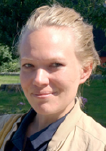 Marianne Rasmussen is a career diplomat for the Danish Foreign Service, currently serving as Senior Advisor in the Department for Multilateral Development Cooperation.
Marianne Rasmussen is a career diplomat for the Danish Foreign Service, currently serving as Senior Advisor in the Department for Multilateral Development Cooperation.
She has been posted to the Danish Embassies in Iraq and Afghanistan and has served as Political Advisor for the EU Delegation to Sudan during the formation and implementation of the Comprehensive Peace Agreement and subsequent secession of South Sudan. She has also served as Media Officer to the Organization for Security and Co-operation in Europe, OSCE, and has NGO experience from Haiti and Egypt.
Drawing on a decade of experience from conflict- and post-conflict settings, Rasmussen brings a broad and nuanced understanding of conflict dynamics at all levels, including community-based peace-building, high-level dialogue and mediation. Rasmussen has worked extensively with gender-issues and women’s rights throughout her career.
Mette Fjalland
 Partnership Advisor, UNDP Nordic Office.
Partnership Advisor, UNDP Nordic Office.
Ms Fjalland has twenty years of experience working with international development issues, with several long-term postings overseas including in Vietnam, Indonesia, New York and Brussels.
Prior to taking up her current position, Ms Fjalland served as head of the UN Resident Coordinator’s Office in Vietnam, as Policy Advisor in UNDP’s former Bureau for Crisis Prevention and Early Recovery in New York, and as Programme Officer responsible for UNDP’s Governance and Poverty portfolio in Indonesia. She has also worked, among others, as Strategic Policy Advisor to the International Federation of the Red Cross (IFRC), as consultant for the American non-governmental organisation PACT, and at the European Parliament in Brussels.
Ms Fjalland holds an M.Litt in Politics from the University of Oxford in England.
Mette Knudsen
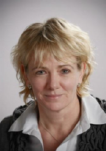 Mette Knudsen is a seasoned diplomat, currently serving as Denmark’s Ambassador to Kenya, Somalia, Eritrea and the Seychelles; a position she has held since 2015. She is thus heading one of the largest Danish Embassies with a broad range of responsibilities from political relations to administering large development and peace and stabilization programs. She has previously served as Danish Ambassador to Greece and Cyprus (2012-2015), Ethiopia and the African Union and ECOWAS (2004-2007). She has been head of the Africa Department in the Danish Ministry of Foreign Affairs (2007–2012) and has also had postings in Zambia (2002-2004) and Tanzania (1995-1998). In Addis Ababa she took on the new and challenging task as listening post of the continent’s overall efforts to further cooperation, especially in conflict prevention, peace and security.
Mette Knudsen is a seasoned diplomat, currently serving as Denmark’s Ambassador to Kenya, Somalia, Eritrea and the Seychelles; a position she has held since 2015. She is thus heading one of the largest Danish Embassies with a broad range of responsibilities from political relations to administering large development and peace and stabilization programs. She has previously served as Danish Ambassador to Greece and Cyprus (2012-2015), Ethiopia and the African Union and ECOWAS (2004-2007). She has been head of the Africa Department in the Danish Ministry of Foreign Affairs (2007–2012) and has also had postings in Zambia (2002-2004) and Tanzania (1995-1998). In Addis Ababa she took on the new and challenging task as listening post of the continent’s overall efforts to further cooperation, especially in conflict prevention, peace and security.
As a Permanent Representative to the African Union and ECOWAS, her role was to lead the Danish engagement with the process of building the African Peace and Security Architecture. She has obtained a great deal of experience with conflict resolution and mediation through her ambassadorial postings in or close to conflict settings.
Mie Roesdahl
 Mie Roesdahl has for the past 25 years worked as a peacebuilding and human rights practitioner in countries in Africa, Asia and Europe. Mie founded Conducive Space for Peace in 2016 and is today leading the organisation. Conducive Space for Peace holds the mission of contributing to transformation of the international system of support to peacebuilding in order to create a more conducive space for local agency and power in peacebuilding.
Mie Roesdahl has for the past 25 years worked as a peacebuilding and human rights practitioner in countries in Africa, Asia and Europe. Mie founded Conducive Space for Peace in 2016 and is today leading the organisation. Conducive Space for Peace holds the mission of contributing to transformation of the international system of support to peacebuilding in order to create a more conducive space for local agency and power in peacebuilding.
Engaging with national/local and international NGOs, state institutions in conflict affected countries, as well as bilateral and multilateral agencies, Mie pursues an ambition of creating linkages where they do not exist, of promoting transformation where no one think it possible, of developing innovative ideas and processes, together with others, that can strengthen collaboration on peacebuilding and human rights at the local and global level.
Mie Roesdahl has among other things served as Secretary General of Oxfam IBIS, Department Director and Senior Adviser at the Danish Institute for Human Rights, and co-director of a four-year research project on human rights and peacebuilding at University of Copenhagen. She has also served as a Conflict Transformation and Human Rights Senior Adviser with the Danish Ministry of Foreign Affairs in Nepal where she worked with local and international partners on peacebuilding and human rights and served as adviser to the Office of the Prime Minister in Nepal.
Pernille Dahler Kardel
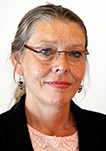 Ms. Pernille Dahler Kardel has been an active participant in international diplomacy for almost 30 years, having held senior positions with the United Nations and the Danish Foreign Ministry. Her diplomatic expertise includes posts in Asia, Africa, the Middle East, Europe and North America, and runs the gamut from political affairs, peace facilitation, international cooperation, and economic development, as well as a focus in the area of women, peace and security. Her activities include membership in the Nordic Women Mediators Network, Denmark.
Ms. Pernille Dahler Kardel has been an active participant in international diplomacy for almost 30 years, having held senior positions with the United Nations and the Danish Foreign Ministry. Her diplomatic expertise includes posts in Asia, Africa, the Middle East, Europe and North America, and runs the gamut from political affairs, peace facilitation, international cooperation, and economic development, as well as a focus in the area of women, peace and security. Her activities include membership in the Nordic Women Mediators Network, Denmark.
Ambassador Kardel served most recently as Acting UN Special Coordinator for Lebanon, from November 2017 through February 2019. She came to that post after a tour as Deputy Special Representative of the Secretary-General for the United Nations Assistance Mission in Afghanistan (UNAMA).
Previously, she held the post of ambassador of Denmark to Egypt, Ethiopia, Sudan, South Sudan and Djibouti. She has served as Denmark’s Permanent Representative to the African Union, the Intergovernmental Authority on Development (IGAD) and the Economic Community of West African States (ECOWAS). Earlier she was posted to the Permanent Mission of Denmark to the United Nations in New York, including during Denmark’s membership of the Security Council. She has also served in Moscow and New Delhi.
Ms. Kardel holds master’s degrees in international public policy from the Johns Hopkins University School of Advanced International Studies Studies (SAIS) in the United States and in interdisciplinary planning from Roskilde University in Denmark.
Sara Dybris McQuaid
 Sara Dybris McQuaid (PhD) is Director for the Centre for Irish Studies (2012-), and Associate Professor in British and Irish History, Society and Culture at Aarhus University. She was a founding member and core research partner in Centre for Resolution of International Conflicts at Copenhagen University from 2013-2019. Her research pivots around how collectives remember, forget and archive their past, particularly as part of conflict and peacebuilding processes. From her early published work on the Northern Irish peace process and the Nordic Council to more recent engagement with the implementation and reinforcement of the peace agreement in the context of Brexit, her work has shown how policy and institutions give shape to particular layered identities and how ways of dealing with the past cast trajectories for imagining the future in political transitions. She has contributed theoretically to conceptualizing particular forms of memory conflicts and the possibilities for their transformation and has engaged extensively with peacebuilding practitioners in developing contact points between research and best practices in this field. She is currently working on dynamics of ‘multi-level memory governance’, where transnational, national and local actors, processes, products and practices give shape to each other. She teaches in the BA specialization in Conflict Studies as well as the constituent course ‘Engaging Conflict and Culture’ on the MA in intercultural Studies.
Sara Dybris McQuaid (PhD) is Director for the Centre for Irish Studies (2012-), and Associate Professor in British and Irish History, Society and Culture at Aarhus University. She was a founding member and core research partner in Centre for Resolution of International Conflicts at Copenhagen University from 2013-2019. Her research pivots around how collectives remember, forget and archive their past, particularly as part of conflict and peacebuilding processes. From her early published work on the Northern Irish peace process and the Nordic Council to more recent engagement with the implementation and reinforcement of the peace agreement in the context of Brexit, her work has shown how policy and institutions give shape to particular layered identities and how ways of dealing with the past cast trajectories for imagining the future in political transitions. She has contributed theoretically to conceptualizing particular forms of memory conflicts and the possibilities for their transformation and has engaged extensively with peacebuilding practitioners in developing contact points between research and best practices in this field. She is currently working on dynamics of ‘multi-level memory governance’, where transnational, national and local actors, processes, products and practices give shape to each other. She teaches in the BA specialization in Conflict Studies as well as the constituent course ‘Engaging Conflict and Culture’ on the MA in intercultural Studies.
Stine Lehmann-Larsen
 Stine Lehmann-Larsen is Director of Engagement, Dialogue and Process Design at the European Institute of Peace (EIP) in Brussels, where she designs and oversees EIP’s mediation, dialogue and peace support initiatives. Through this position, she ensures that the Institute is responsive to overall political challenges to peacemaking and works as a strategic resource for its partners.
Stine Lehmann-Larsen is Director of Engagement, Dialogue and Process Design at the European Institute of Peace (EIP) in Brussels, where she designs and oversees EIP’s mediation, dialogue and peace support initiatives. Through this position, she ensures that the Institute is responsive to overall political challenges to peacemaking and works as a strategic resource for its partners.
During 2018, Ms Lehmann-Larsen acted as EIP’s Executive Director, in charge of the Institute’s staff and operations on five continents. Since joining EIP in 2015, she has been responsible for multiple large-scale engagements in Afghanistan, Cameroon, Colombia, Iraq, South Sudan, Venezuela and Yemen together with a range of policy development initiatives in support EIPs European partners.
Before joining EIP, Lehmann-Larsen worked for eight years at the Centre for Humanitarian Dialogue (HD), where she led a wide range of initiatives that focused on support to peace processes, dispute resolution, and building partnerships with local and international actors in Africa, Asia, Eastern Europe and the Middle East. Prior to that, she worked at the Danish Defence Academy, the Danish Institute for International Studies, and the Danish Permanent Mission to the United Nations in New York.
